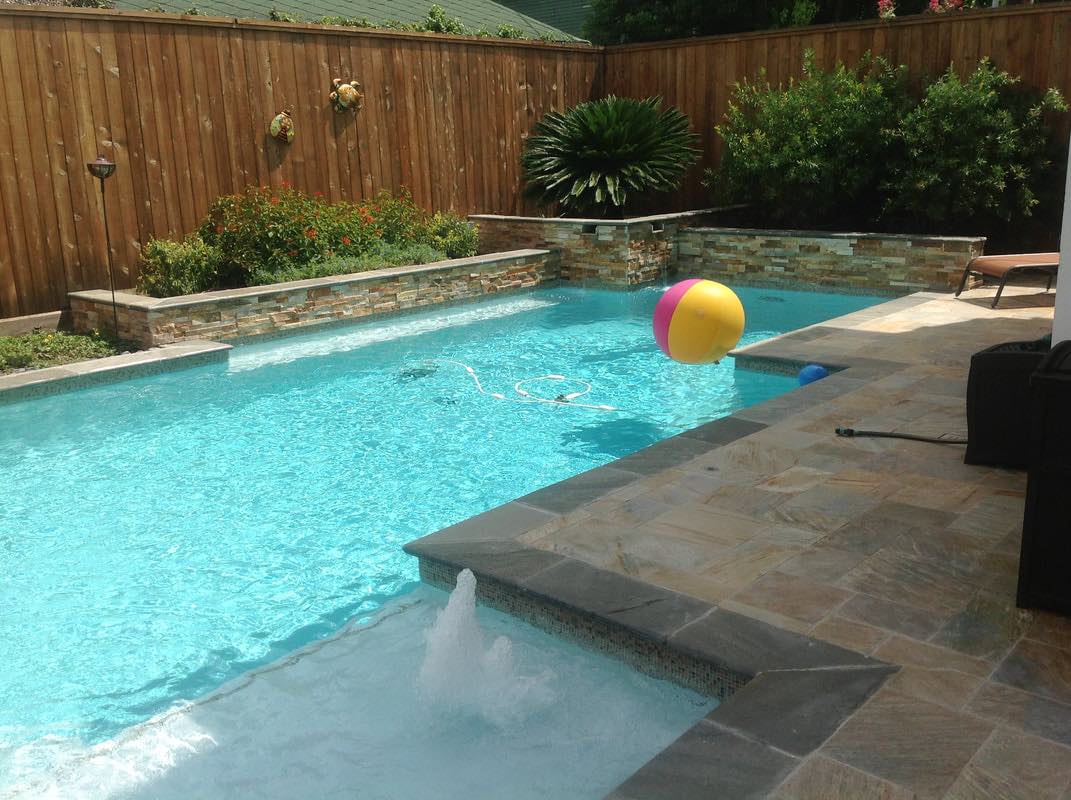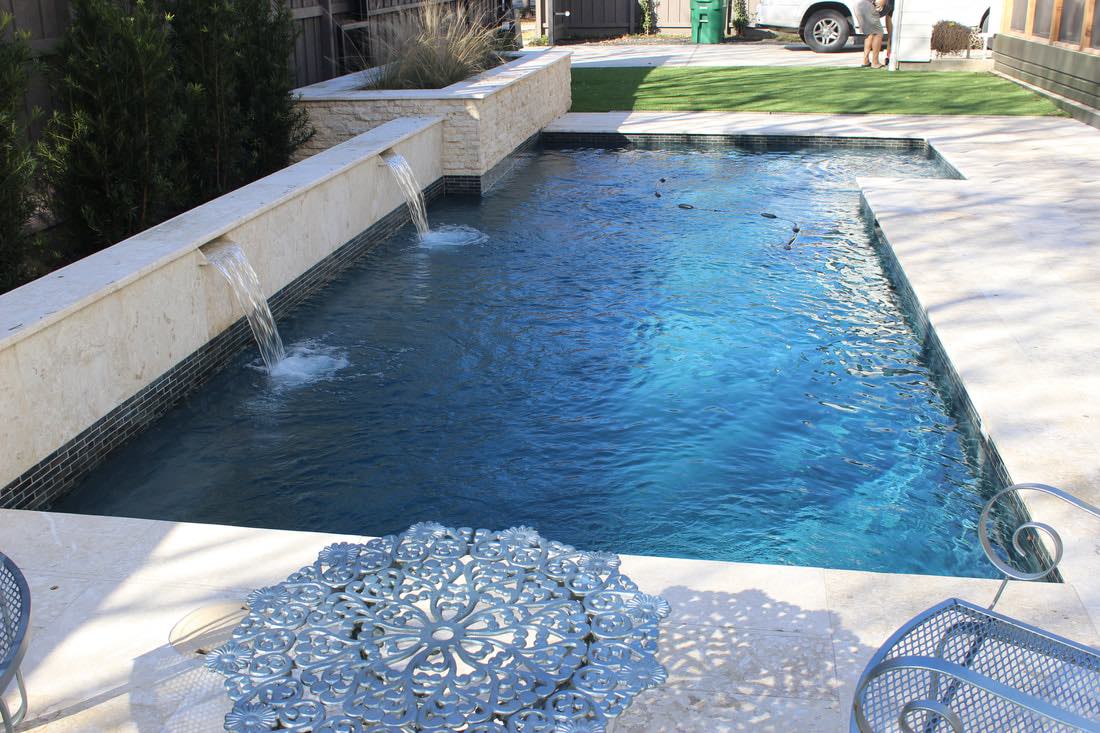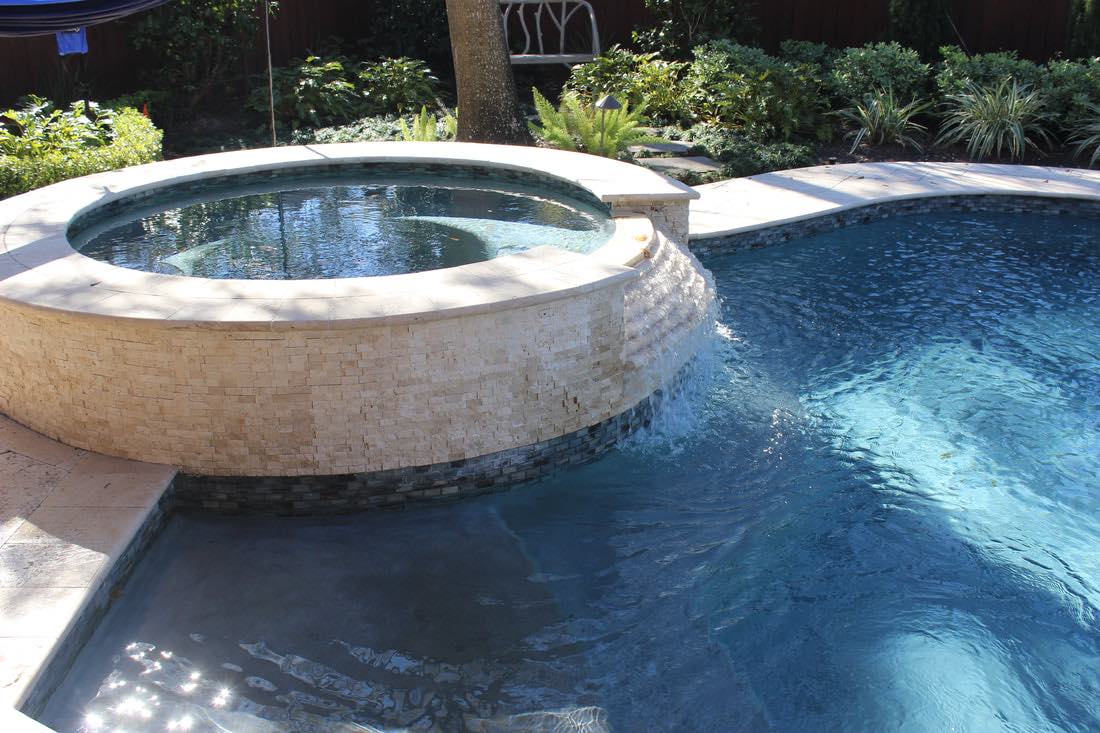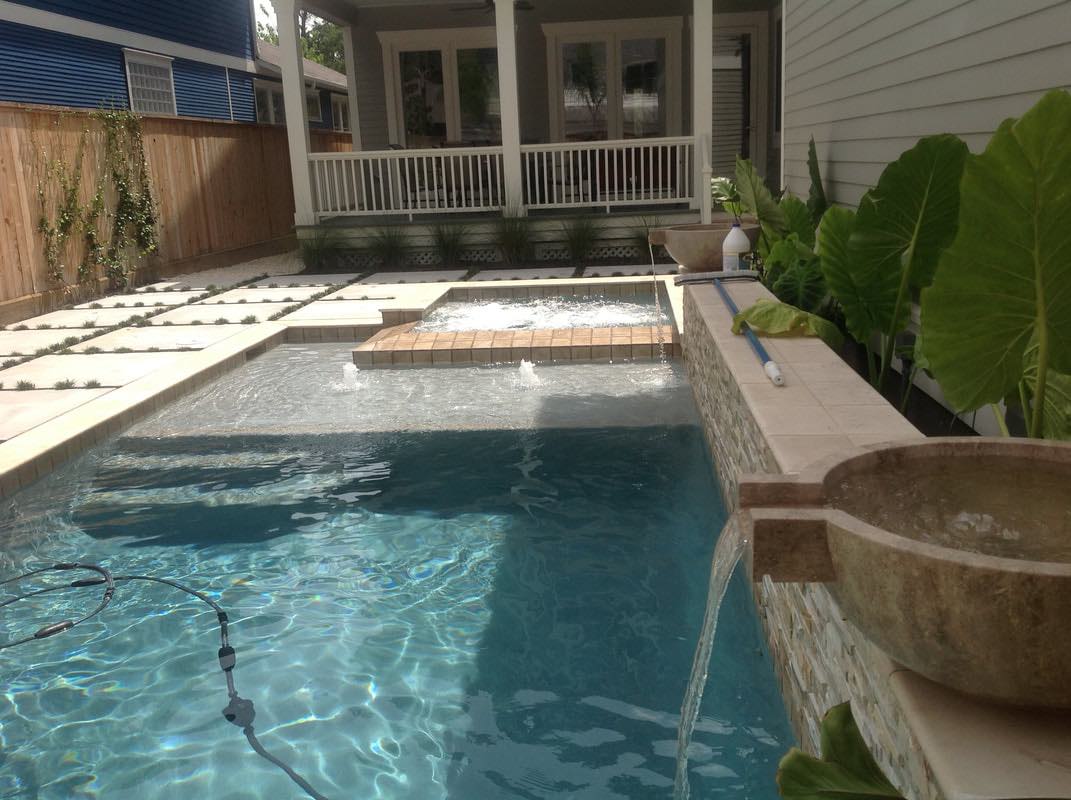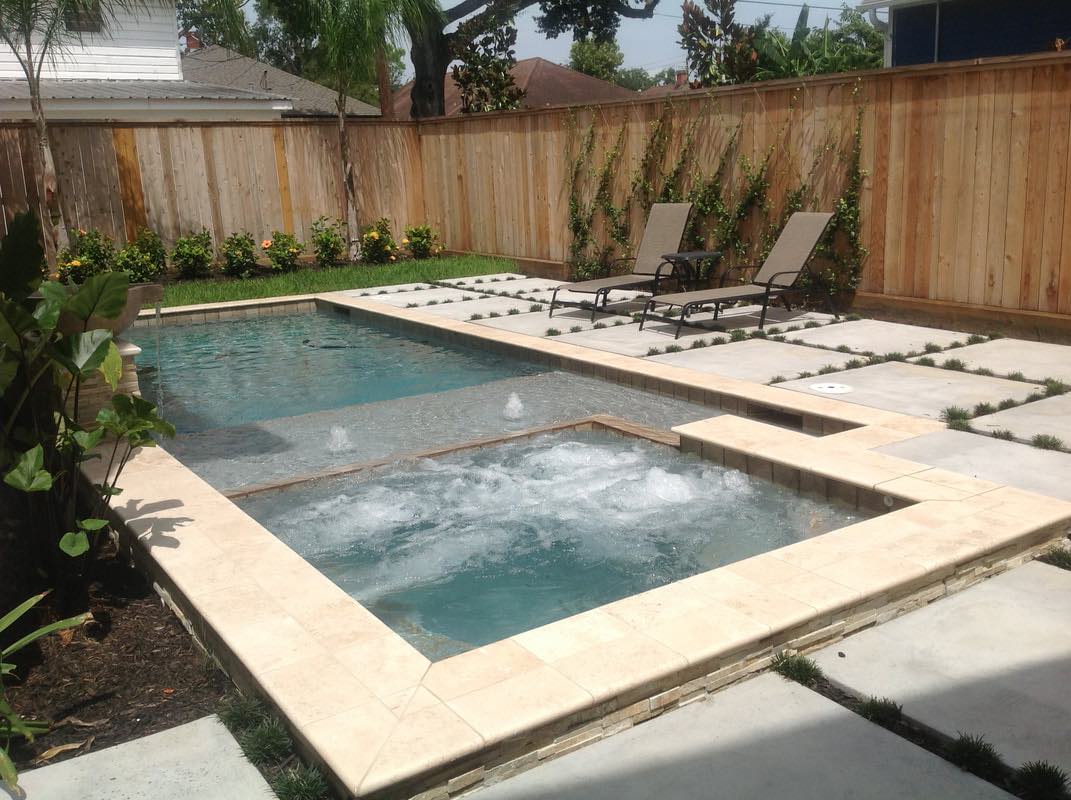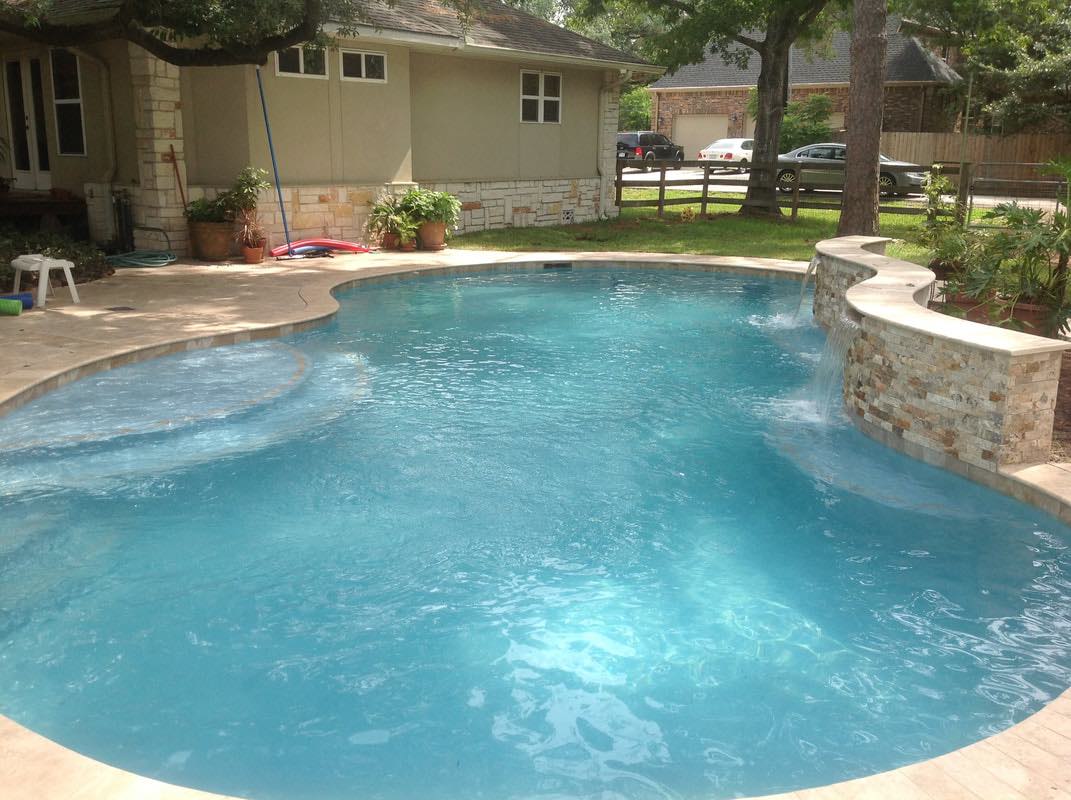Saltwater treatments in swimming pools began in Australia in the 1960s. However, it was not until 1972 that New Zealand introduced the first salt water pool systems to its swimming pool market. The United States followed in the early 1980s, and ever since they have continued to grow in popularity. Because of the enormous benefits vs. the standard chlorine, increasing demand for salt water pool systems has spread among public swimming pools, hotels, country clubs, apartments, condos and homeowners.
How Does a Salt Water Pool System Work?
Let’s start by saying overall that saltwater pool systems still produce chlorine but differently than the traditional chlorine method.
The process begins with installing a salt cell to the filtration system on the pool equipment pad. As the water moves through the filter, the salt generator draws the salt, previously added to the pool water, to generate chlorine utilizing an electrolysis process. As the salt (sodium chloride) is broken down, a chemical reaction occurs that produces chlorine in the form of hypochlorous acid and sodium hypochlorite.
These disinfecting, sanitizing, and oxidizing agents work the same as chlorine, which means a saltwater pool is not free of chlorine. It simply means that a salt generator makes the chlorine instead of the traditional ways of adding chlorine in powder or liquid form.
Salt Water Pool System Maintenance and Care
To keep the salt generator producing the proper chlorine levels, the salt level in the pool’s water must be at the appropriate level. Generally, the salt levels for residential pools should be between 2800 to 4200 parts per million range. So no need for you to worry about a salty pool. This is far less than the ocean, where the salt level is about 35,000 ppm.
Salt water pool maintenance is considered to be easier than that of the traditional chlorine pool. If the pool water salt level remains at the proper level, the chlorine will also be at the right level. Therefore, continuous testing with pool testing strips and adding chlorine powder and liquid will not be needed, unlike a chorine pool. In addition, storing jugs of chlorine on-site will not be needed.
Salt Water Pool Cost
As we have mentioned, the maintenance of a saltwater pool will be much less and more manageable than a chlorine pool. However, installing the saltwater pool system comes at a higher price tag. The salt itself will come at a cost but not a high one. Over the long term, a saltwater system will pay for itself and end up being cheaper than a chlorine swimming pool. The salt generator will make the chorine with no need to purchase chlorine which does come at an additional cost.
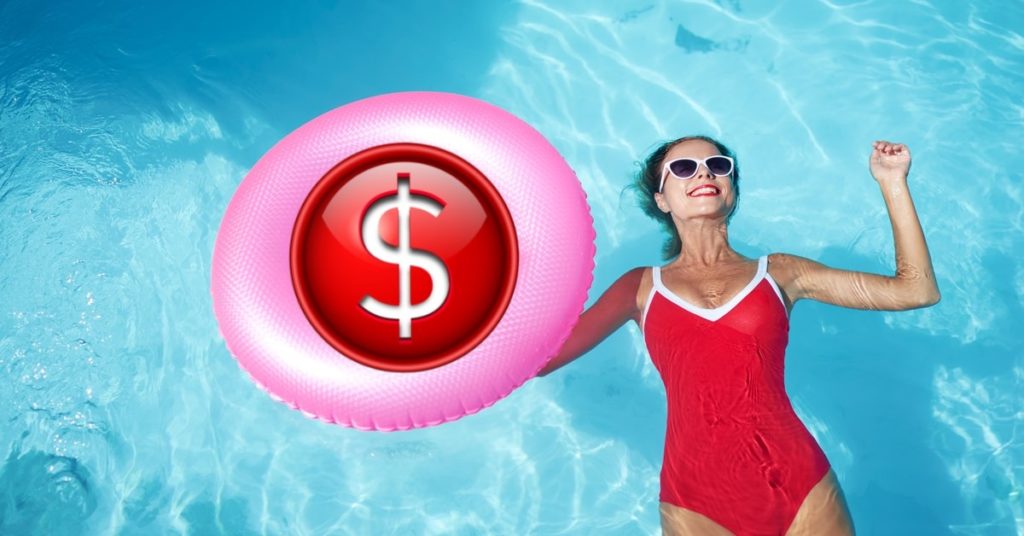
Salt Water Pool Benefits
There is a reason new custom pool owners are installing saltwater pool systems, and those with existing pools are converting from chlorine to saltwater. Here we bullet point a few:
- Pool chemical maintenance is easier.
- Saltwater produces clean, clean and silky-smooth water.
- Salt is a natural sanitization method compared to a harsher chemical such as chlorine.
- No chlorine odor resulting in a pleasing and healthy swimming experience.
Drawbacks of Salt Water Pools
With so many excellent benefits, are there any drawbacks? For example, is salt corrosive and can it damage swimming pool components and equipment?
The salt level in a pool is so low that it is similar to fresh water’s composition. Therefore, it takes a lot of time for the salt to damage a pool’s components. Poor pool cleaning, maintenance and care will shorten the time for corrosion to appear.
Saltwater pool systems have a proven history of working exceptionally well. However, if you are concerned about corrosion, speak with your pool company to ensure your pool remains beautiful. In addition, your pool company will know the right pool components to use to avoid corrosion.
Are You Ready To Learn More To Decide If a Saltwater Pool System is For You?
Contact the Venture Pool Company. We will be happy to explain in more detail all you need to know to decide if it’s best for you vs. chlorine.

